Gallery of Digital Humanities Projects at MIT
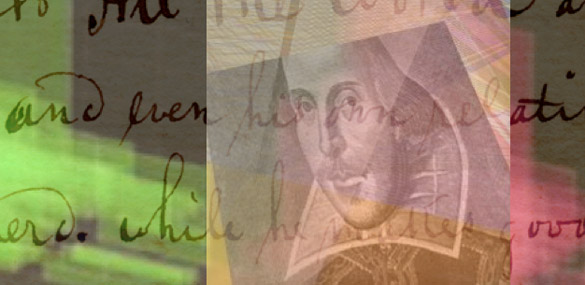
The Innovative Humanities
The Humanities comprises fields of study characterized, like Science, by ongoing experimentation and innovation. What distinguishes the Humanities from other modes of inquiry is its particular attention to the human experience — including the study of issues, objects, values, and questions of enduring interest for our lives as human beings. For information on the range of Humanities disciplines taught at MIT, visit the TOUR de SHASS. For more on the powerful role of the humanities in an MIT education, visit our Mission page.
Digital Humanities at MIT
The work going on in digital humanities and new media is one expression of the innovation that characterizes the Humanities more broadly. Using computational tools and methods, humanities scholars are opening new lines of research and discovery, revitalizing the study of objects from the past, and asking questions never before possible. This page presents a gallery of some of the digital humanities projects and research underway at MIT.
Gallery of Digital Humanities at MIT
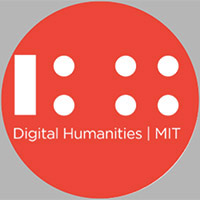 |
MIT Program in Digital Humanities
DH Lab, Projects, Residencies MIT Digital Humanities enables faculty and staff to be in residence in the lab and to work closely with undergraduate students, postdocs, and technical professionals to create projects related to their research and teaching. In the DH Lab, MIT students harness their skills in computer science and programming to advance the state of knowledge in the humanities and to help empower other researchers and enthusiasts to use digital tools. MIT DH also hosts a lecture series, visiting scholar residencies, and hackathons. Additional courses in DH are planned, culminating in a graduate certificate in Digital Humanities. All code from the project is open source and hosted on GitHub.
|
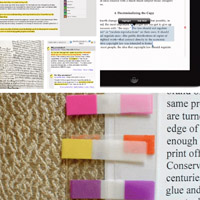 |
Annotation Studio | An ancient literary practice goes digital
Developed in MIT SHASS, the new online tool "Annotation Studio" promises to improve upon traditional techniques for entering marginalia and side notes in books — enabling readers not only to annotate texts across media, but also to share comments with others and to enhance them with links, images, video, and audio. |
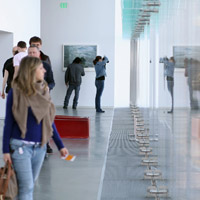 |
CMS.633 | A tech-savvy approach
Digital humanities: Topics, Techniques, and Technologies First offered in the Spring 2013 term "Digital Humanities: Topics, Techniques, and Technologies" gave MIT students the chance to pair humanities insights with technical know-how on projects with real-world applications—including innovations for the Institute of Contemporary Art and the Isabella Stewart Gardner Museum. Students were introduced to key digital humanities concepts, including data representation, digital archives, user interaction, and information visualization, then given opportunities to apply these to a variety of challenges. Because this class took place at MIT, many students were adept at computer programming, so they were able not only to conceptualize what kinds of tools might prove useful to their clients — they were also able to build them. Feature Story |
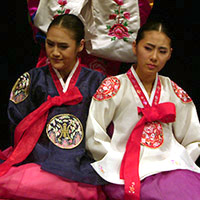 |
Global Shakespeares | A world of interpretation
Shakespeares, plural The Global Shakespeares Video & Performance Archive is a collaborative project providing online access to performances of Shakespeare from many parts of the world as well as essays and metadata by scholars and educators in the field. An international, online research and educational community use the ever-growing archive, which currently includes a catalogue of 400 productions. Website |
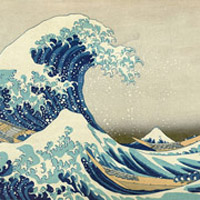 |
HyperStudio | Advancing the field of digital humanities
"Digital humanities" is an approach that couples humanities subjects with computational approaches for research and teaching, and creative production. Digital humanities projects use such tools and methods as web-based media, digital archiving, data mining, geo-spatial analysis, crowdsourcing, data visualization, and simulation. At MIT, digital humanities scholars use and create new tools for research and teaching; they also conduct scholarship about new media forms. HyperStudio explores the potential of new media technologies for the enhancement of education and research in the humanities. The work focuses on questions about the integration of technology into humanities curricula within the broader context of scholarly inquiry and pedagogical practice. A central goal is to provide individual digital humanities project participants flexibility in modeling, analyzing, and presenting their materials as they choose — while also allowing researchers to combine features from other projects in innovative ways. Projects to date include Annotation Studio, Comédie Francaise Registers, Cultura, Berliner sehen, Arab Oral Epic, among many others. Website |
 |
ICE Lab | Imagination, computation, and expression
Building culture in digital media Led by Associate Professor of Digital Media Fox Harrell, the ICE Lab researches and develops subjective computing systems — artificial intelligence and cognitive science-based computing systems for creative expression, cultural analysis, and social change. Harrell's book Phantasmal Media (MIT Press, 2013) details how computing can create new forms of expression and culture. including examining how narrative imagining occurs at a fundamental cognitive level. |
 |
"This course focuses on big questions. You will learn how to ask them and how to answer them." MIT Philosopher Caspar Hare presents the first introductory philosophy MOOC (massive open online course) offered by an American university. In "24.00x, Introduction to Philosophy: God, Knowledge and Consciousness," Hare leads students through the fundamental questions that underlay our understanding of existence, while grounding them in the basic practices of analytical philosophy. |
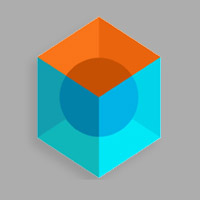 |
MIT Game Lab | Exploring the potential of play
The SHASS-based MIT Game Lab maintains MIT’s role as a leader in the study, design, and development of games. The award-winning lab creates groundbreaking games, interactive online courses, and new applications to real-world challenges. Modern games have brought the power of play to many endeavors — from entertainment to education, art to activism, science to socialization, and more. The MIT Game Lab explores the potential of play in all these realms, particularly as it is amplified by new technologies. Areas of research: -Developing games to demonstrate and conduct research -Rapid Prototyping and play testing research -Meaningful and transformative experiences through gameplay -Player Research: Cultures, Experiences -E-Sports and professional computer gaming Website |
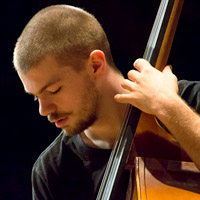 |
Music21 | Asking questions never before possible
State of the Art
Developed by Michael Cuthbert, the Homer A. Burnell Career Development Professor and Associate Professor of Music, music21 is a suite of tools for computer-aided musicology. The program, which allows musicologists and researchers to ask entirely new questions, has become the de facto standard for software music analysis. Applications include computational musicology, music information, musical example extraction and generation, music notation editing and scripting, and a wide variety of approaches to composition, both algorithmic and directly specified. Computers have transformed how we listen to, obtain, compose, and notate music. With the development of music21, they are also fundamentally changing how we research and analyze music. Feature Story Cuthbert receives 500K Digging in Data grant |
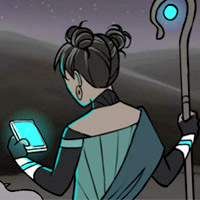 |
The Education Arcade | Games that promote learning
The Education Arcade explores games that promote learning through authentic and engaging play. Its mission is to demonstrate the social, cultural, and educational potentials of videogames by initiating new game development projects, coordinating interdisciplinary research efforts, and informing public conversations about the broader and sometimes unexpected uses of this emerging art form in education. Education Arcade and Learning Games Network Creative Director Scot Osterweil and his design team received Game of the Year Honors at the 2013 Games for Change Conference for their new game Quandary. Quandary is a free, online game where players, age 8-14, shape the future of a new society while learning how to recognize ethical issues and deal with challenging situations in their own lives. Website | Projects |
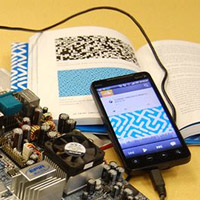 |
The Trope Tank | Computation and language
Directed by MIT Associate Professor of Digital Media, Nick Montfort, Trope Tank is a lab for research, teaching, and creative production. It develops new understandings of digital media by focusing on the material, formal, and historical aspects of computation and language. Speaking of a recent collaborative book 10 Print, Montfort says, “We’re arguing that code is culturally significant — and that larger scale models of scholarship can be brought to bear on fundamental questions. The intersection of digital and humanities is not just in new modes of presenting scholarship, it’s not just in ways computer techniques can be used to study materials — it’s also in understanding the ways computation and digital media have been transforming the culture." Website | Recent Projects | Feature story on 10 PRINT |
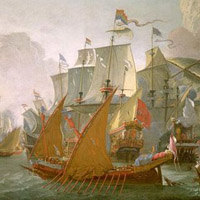 |
Visualizing Cultures | A pioneer in image-driven scholarship
Visualizing Cultures, launched at MIT in 2002, is a visionary project in the field of image-driven scholarship and learning. The project uses new technology and formerly inaccessible visual materials to reconstruct the past as people of the time visualized the world (or imagined it to be). Works to date focus on early-modern China, and Japan in the modern world, and extend beyond Asia per se to address culture in broader ways, including examining modernization, war and peace, consumerism, and images of "self" and "others." Website | Research Profile | Video |
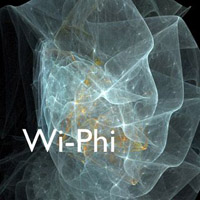 |
Wi-Phi | Building a better brain
Wi-Phi online platform presents "philosophy's greatest hits" |
 |
Suggested Resources
MIT HyperStudio
Humanities Resource Center Online Indicators National Humanities Center
Humanities Education and Research Association "The humanities help create: opportunity for all Americans, innovation and economic competitiveness, productive global engagement, and strong communities." |